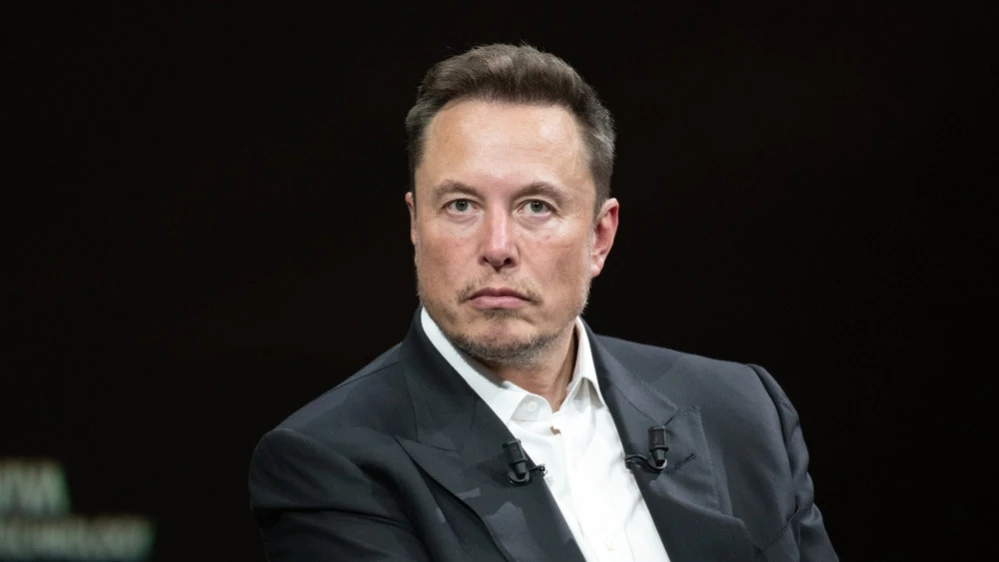A campaign has been launched in the US against Musk's record bonus. He may receive $1 trillion
Ahead of the release of Tesla's third quarter report, several organizations at once urged the company's shareholders to vote against its director's compensation

Several unions and other influential organizations have launched a Take Back Tesla campaign website, urging the company's shareholders to vote against a new compensation package for Elon Musk. If this bonus is approved, Musk could receive nearly $1 trillion in stock and increase his control over Tesla. Two major shareholder advisory firms also opposed such terms.
Details
The American Federation of Teachers, a union with 1.7 million members, and Public Citizen, a nonprofit organization dedicated to protecting consumer interests and promoting corporate responsibility, have launched a website called "Take Back Tesla," CNBC reports. The site calls on shareholders of the electric car maker to vote against an "outrageous" $1 trillion bonus package for CEO Elon Musk. The board of directors has proposed to pay Musk such remuneration, and the vote is scheduled for November 6.
Take Back Tesla is urging attendees to contact public pension and investment fund managers who invest in the automaker's stock to demand that the package be rejected. The organizations explain that Musk's activism has "damaged the Tesla brand and distracted him from running the company," and the proposed plan, in their estimation, does not obligate the businessman to give it more attention than other projects.
The coalition opposing Musk's record bonus payment also includes Americans for Financial Reform, a coalition of civic organizations advocating for tough regulation of Wall Street, consumer protection and financial justice, the Communication Workers of America union, the People's Action and Stop the Money Pipeline movements and others.
Who else is against
Two leading firms that help shareholders determine decisions - so-called proxy advisers - had earlier also recommended voting against Musk's record compensation, with Glass Lewis & Co. citing shareholder dilution risks and other questionable terms of the plan, Bloomberg writes. Another firm that opposed it wasInstitutional Shareholder Services (ISS). Such advisors have serious voting power over institutional investors, especially those who manage assets through passive funds, the agency explained.
In 2018, both of these companies had already called for Musk's previous roughly $56 billion compensation package to be rejected, but about 75% of shareholders still supported it at the time. The bonus was later blocked by the court, this proceeding is still ongoing.
New York City Comptroller Brad Lender, who manages a $300 billion pension fund, also spoke out against it, CNBC writes. "Overall, Tesla was a good investment for us, it was getting more expensive, and that's why we didn't sell it. But I believe the board is not independent enough and Musk is an absentee CEO. This stake is like a redemption demand after a volatile stock performance and loss of consumer confidence, " he said. As of August, funds managed by Lender owned about $1.1 billion worth of Tesla stock.
Cathie Wood has endorsed Musk
Longtime Tesla supporter and investor Cathie Wood, who first invested in the company a decade ago at $13 per share, has come out in defense of the record premium. The founder and CEO of the ARK Invest fund said the problem is not Tesla itself or the desire to make the richest man in the world even richer, but the financial system that allows such resistance to be organized. It's "sad, if not detrimental" how much influence proxy advisers have, Wood complained on social media X.
What kind of bonus was offered to Musk
The proposed $1 trillion equity compensation plan is designed to last for 10 years, during which Musk would receive no salary or bonuses, but would be eligible for a bonus in the form of stock packages as certain targets are met. Getting the maximum payout of 423 million shares will be an extremely difficult task, says the Financial Times. To do so, Tesla's market capitalization must grow from the current $1.5 trillion to $8.5 trillion. In addition, the company must deliver 12 million more electric cars; reach 10 million autonomous driving subscriptions; register and put on the road 1 million robot cabs; sell 1 million robots based on artificial intelligence and gradually increase adjusted earnings 24 times to $400 billion.
At the same time, as analyzed by Reuters, Musk can earn tens of billions of dollars without achieving the most ambitious goals. Thus, he can get more than $50 billion by fulfilling only a limited number of simpler conditions, which do not necessarily mean radical changes in the products or business model of Tesla. If only two of the easiest tasks are realized, and the company's stock grows moderately, Musk will get $26 billion - more than the total compensation of the world's eight highest-paid CEOs in their careers, Reuters writes. These include Meta CEO Mark Zuckerberg, Oracle CEO Larry Ellison, Apple CEO Tim Cook and Nvidia's Jensen Huang.
The additional shares Musk could receive under the compensation package would increase his stake in the electric car maker to at least 25%, Bloomberg wrote. This is the number Musk mentioned during negotiations as a condition for continuing to work in the company, according to Tesla's disclosure.
This article was AI-translated and verified by a human editor
